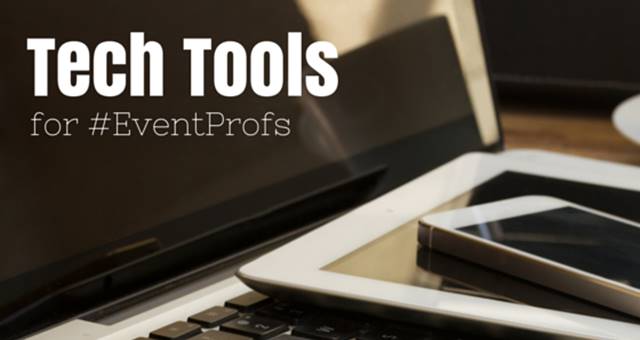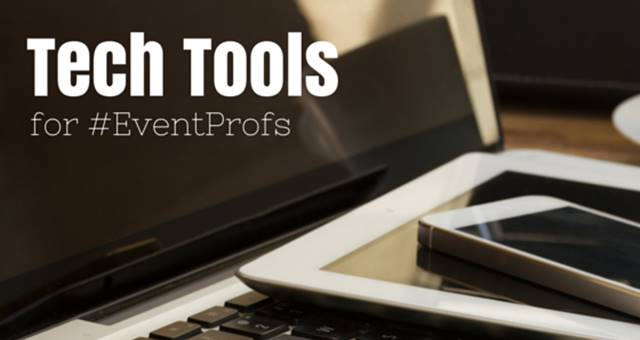
Spice caught up with Loretta McGill from event software company Currinda to talk about productivity, collaboration and business management tools.
As an event professional you’re also expected to be a financial controller, marketer, customer service representative and account manager. With all these duties, staying on top of your workload is challenging.
There are some excellent tools that help event professionals stay on top of their workload, become more productive, collaborate efficiently with teams and clients and manage business activities.
1. Slack (free and paid version)
Slack’s motto ‘Be less busy’ really translates to spend less time getting lost in a sea of emails. Slack is a team chat tool for members to collaborate, share files and create entire posts for feedback.
There are three messaging types to help organise teams, conversation and topics.
Channels are dedicated to specific topics, teams or projects such as delegate enquiries, marketing or venue. Everyone who subscribed to a channel can chat, collaborate and share information. No more CC’d emails.
For sensitive information, Slack has private channels where team members are invited to join. No one outside of the channel can join or see any information shared.
Direct messaging lets individual team members chat privately with each other, no more going back and forth with emails,
Slack isn’t just for teams. It is perfect for PCOs to manage clients by inviting them to their own dedicated channels to manage all client communications and file sharing.
Slack is accessible from anywhere via its web-based platform and mobile app allowing teams to keep updated and collaborate on the go.
2. Trello (free and paid version)
Trello is a simple visual tool that helps teams and individuals manage project workflows and share ideas. Trello organises project notes, to-do lists and documents all in the one place.
It’s the perfect tool for planing end-to-end events and conferences. Team boards makes it easy to collaborate in real-time and keep on track using the calendar tool.
Begin planning with this annual conference sample board.
The Trello app is perfect for busy event professionals who spend time away from the office. It automatically syncs with the desktop version in real-time.
Trello is also a great tool for weekly event team reporting. Here’s a weekly event reporting sample board.
3. Xero (paid)
Xero is an online accounting software solution. With an easy-to-use interface its fast becoming popular with accountants and businesses of all sizes.
Xero’s intuitive and user-friendly software means you don’t need to be an account to know how to use it, making it ideal for any event management business. The software lets you manage all your accounts and payroll within the one solution and connects to your bank accounts to give the most up-to-date information.
Other features include: real-time financial data and reporting – perfect for reconciliation reports; Online invoicing; Unlimited users access for teams, notes and queries makes it easy to work collaboratively within the software.
Like Slack and Trello, Xero offers a mobile app that syncs with the web version in real-time.
4. Google Analytics (free)
Google Analytics helps you do this and measures the success of your website and marketing within one system. Whether you are the event manager or event marketer, it is important to get to know your audience.
Understanding where your delegates come from is key to running a successful event marketing campaign. Google Analytics tracks information on website visitor demographics including age, gender and geographic location. It also tracks where they have come from on the web, whether they came via a search engine, social media or referred from another site. Referral traffic helps measure the success of advertising campaigns by showing how many visitors have clicked-through via an external website.
Google analytics also shows you what your visitors are doing while on your website. The site content section shows what pages are most popular, how visitors are interacting with your website and where they are exiting your website. Page exits provide clues on where visitors are leaving and for events, at what point they’re abandoning the registration process.
5. CamCard (free and paid version)
Having a big stack of business cards sitting on your desk after an event is never going translate into business. Despite living in the digital age, it seems that traditional business cards are still very much the preferred accessory at events.
Luckily, there are apps which help us manage our business cards in a smart and efficient way. CamCard is a cloud-based business card scanner that makes following up with new contacts easy.
The app scans business cards, inputs the information into its database and creates digital cards for individual contacts. The added bonus of CamCard is you’re able to export all your contacts into an Excel document (handy for importing into MailChimp or a CRM). CamCard also syncs with Gmail and Google contacts for efficient contact management.
Currinda registration and submissions software helps event managers efficiently manage end-to-end events within one integrated platform. To learn more about Currinda products including the new native event app, head to their website.





